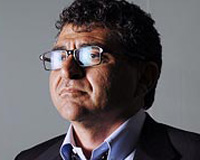Lawyers for the SFO today accepted at the high court that errors were made in the lead-up to last year’s dawn raids on Vincent Tchenguiz’s premises, but denied there was any “bad faith” on its part.
They argued that concessions already made by the director of the SFO – that the search warrants issued were unlawful and should be quashed on the basis that information before the judge was inaccurate in material respects – were enough to dispose of almost all of Vincent Tchenguiz’s judicial review claim.
However, in relation to Robert Tchenguiz, the SFO denied that the warrants issued in respect of his premises were unlawful.
Dealing first with the Vincent Tchenguiz claim, James Eadie QC, for the SFO, said in written submissions before the court: “Errors there were. However, there was on no view any bad faith on the part of the SFO. Once the errors were appreciated, the quashing of the warrants was properly, speedily and frankly acknowledged as the necessary consequence.
“There has been a full explanation as to how and why the errors came to be made. It is evident that the SFO takes those errors very seriously and is determined to seek to ensure that their processes are adjusted accordingly.”
He said that, as a result, the director of the SFO accepted that a costs order would be made against him, but argued that those costs should be assessed on a standard basis, rather than the punitive indemnity basis.
Turning to the Robert Tchenguiz claim, he said the director had set out in a witness statement “in painstaking detail” the basis upon which Robert was “under investigation for his participation in a serious and complex fraud” and that this statement “amply demonstrates why there was a proper basis to the SFO’s suspicions regarding, and thus desire to investigate, Robert Tchenguiz’s involvement”.
He added that there was “no material misstatement of the SFO’s suspicions to the court” when the warrants were issued.
He said that it was “unsurprising” that the SFO should wish to continue to investigate the extent to which the involvement of the trustees, Investec, in managing the Tchenguiz Discretionary Trust was sufficient to protect Robert from allegations of criminal conduct, as well as other matters.
Arguing that the complex investigation was in the public interest, he said: “The seriousness of the collapse of Kaupthing needs no exposition. If there is suspected criminality in its affairs leading up to that collapse, it is heavily in the public interest that that criminality should be investigated. The judgments about whether there are matters properly to be investigated are properly for the director.”
The hearing continues.











